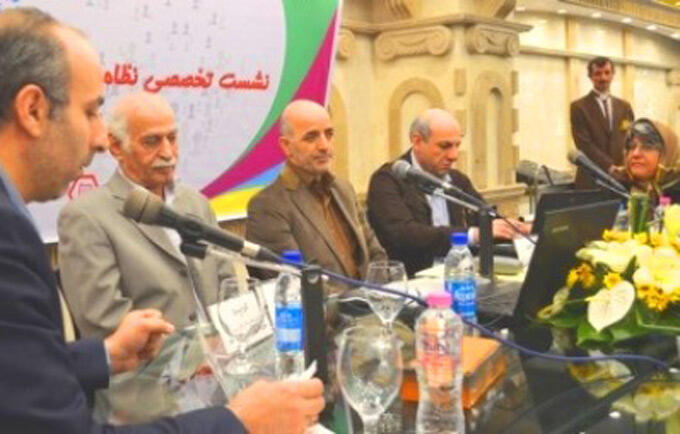“Creative analysis of data is the best way to achieve statistical ideals.”
14 October- On the occasion of Civil Registration Decade and following the UNESCAP regional conference, an expert meeting on Civil Registration and Vital Statistics (CRVS) was held by the National Organization of Civil Registration (NOCR) in cooperation with UNFPA.
Attending the meeting were a number of well-known official figures such as Mr. Mahzoon, Head of Migration, Demographic Data and Statistics Office, Mr. Parsaei, Deputy of IT and Demographic Data Office, Prof. Mohammad, Epidemiology and Vital Statistics Professor in the University of Tehran, Dr. Khosravi, Senior Consultant in Network Management Office of the Ministry of Health and Medical Education and Ms. Ahmadzadeh, UNFPA Assistant Representative.
The meeting aimed at sharing the UNESCAP agenda with representatives from different provincial offices of NOCR in Iran in order to improve CRVS system and further involve the provincial authorities in latest developments in area of CRVS.
Mr. Mahzoon, in his opening remarks, welcomed the representatives of provincial offices of NOCR attending the meeting, provided a brief background on CRVS and named Iran as one of the successful countries in the region in gathering vital data.
Mr. Parsaei also highlighted Iran’s statistical achievements and added: “Hopefully through holding such meetings and knowledge sharing platforms we will be able to move from better to the best.”
He further pointed out the importance of improving our mortality data gathering system and introduced “raising proposals in higher levels of government” as a seemly solution to achieve the ideals. He then thanked UNFPA for its ongoing support to NOCR.
According to experts’ opinion, in any case “correct analysis of data” is the key factor to find appropriate solutions. In this regards Ms. Ahmadzadeh added: “Moving from acceptable to ideal is indeed the more difficult step to take. In order to improve the current situation, first we need to strengthen our inter-sectoral cooperation which will hopefully be achieved through an agreement to be signed between NOCR, Statistical Center of Iran and MOHME in the upcoming months. Second is to make sure that the scientific community has access to full up-to-date data, enabling them to provide decision makers with sound and practical analysis.”
Professor Ahmad also pointed out the valuable use of data in any given situation and said: “The major statistical breakthrough is only made possible through creativity and smart usage of what data we have in hand.”
The meeting continued by expert discussions on the role of vital data in statistical systems, UNESCAP Agenda and CRVS system focused on mortality data.


